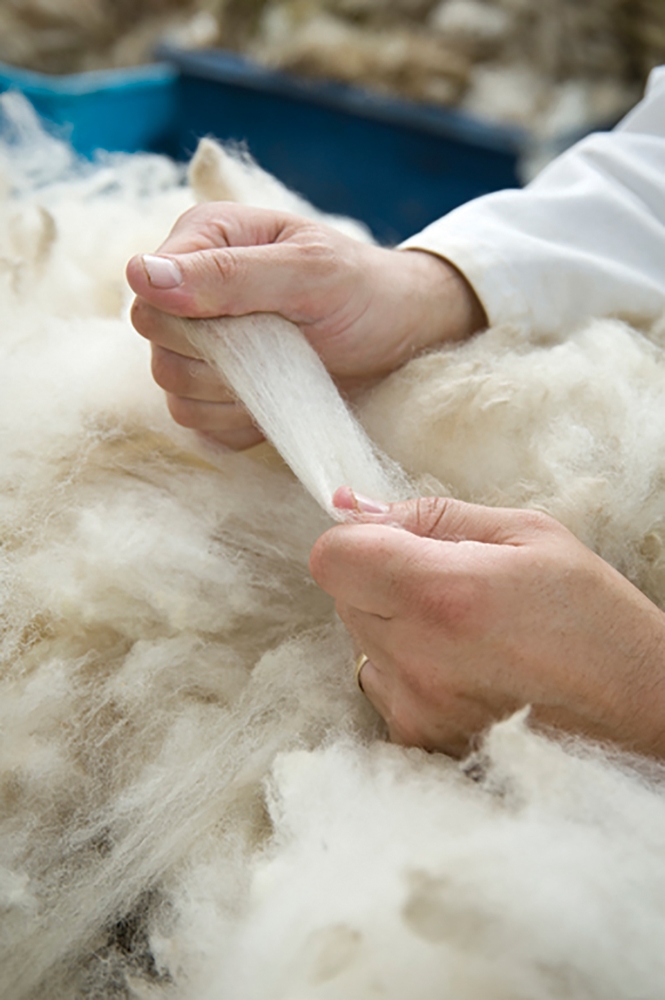Maximise your clip value – avoid these faults
The faults listed below can significantly reduce the value of your wool clip. Please ensure that ensure that your wool is delivered to us in good condition to help us to maximise your value.
Excessive marking
Excessive marking can significantly reduce the value of your wool. If you do need to mark your sheep, please use a British Wool approved product sparingly. All British Wool approved products have undergone stringent scourability tests - click here to view the full list.
Dip colouring
Avoid buying sheep that have been bloom dipped. This dramatically reduces the value of the fleece.
Wet fleeces
Wet wool has to be sent away for scouring, which adds significant extra cost. Please avoid shearing wet sheep, store your wool in a clean, dry place and ensure that all loads are fully sheeted in transit.
Damaged fleeces
Fleeces can be damaged by damp, ticks, lice and maggots. Store fleeces in a clean, dry place, not in direct contact with a concrete floor. Wool is naturally hygroscopic and will draw in any moisture from the floor.
Excess vegetable matter
Vegetable matter can naturally occur in fleeces after grazing in areas of heather, moss and bracken. Excessive vegetable matter is costly and difficult to remove, and often caused by exposure to hay, seed, straw and chopped silage.
Daggings
Daggings should be removed and discarded before sending your fleeces to us. They have no commercial value, and generally result in a penalty of -10p per kg.
Unrolled fleeces
Unrolled fleeces significantly impact on handling efficiency in depots, and generally result in a penalty of -10p per kg.
Polypropylene/nylon contamination
Contamination with man-made fibres can result in the rejection of yarn during the manufacturing process. This fault generally results in a penalty of -30p per kg.
 Maximise the value of your wool clip
Maximise the value of your wool clip